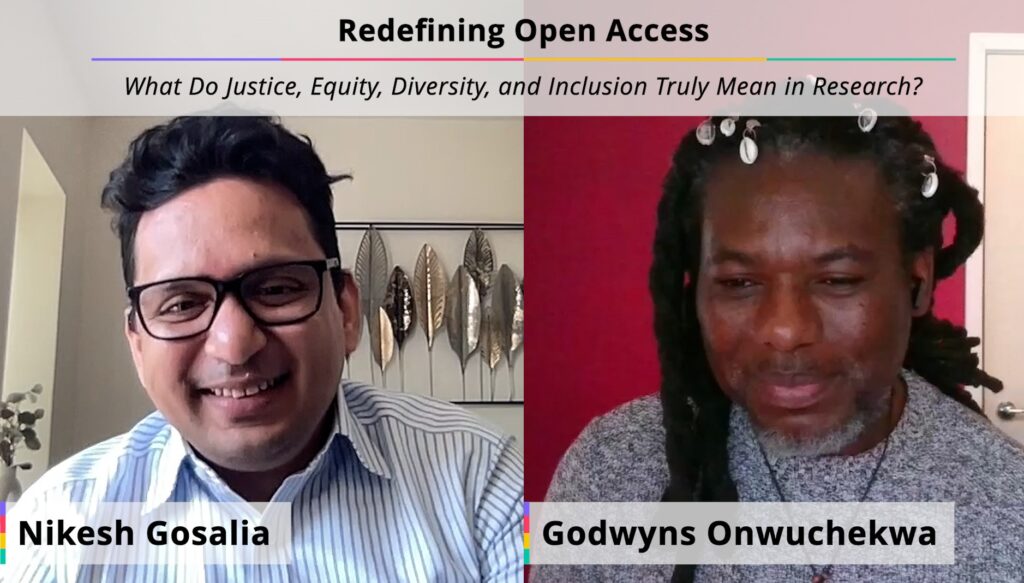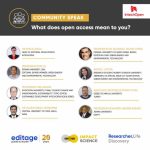Open access publishing for humanities researchers

Navigating the complex scenario of open access publishing can be challenging for early career researchers, especially those in the humanities and social science disciplines. However, armed with some general knowledge and simple tips, you can form a better understanding of how open access models work and have a smoother publishing experience.
Open access is simply the concept that all published scientific research should be freely accessible to anyone interested in reading it or using the information to extend their own work and increase the scientific knowledge base. In traditional subscription publication models, research articles are placed behind paywalls, thus denying access to those unable to pay and without an affiliation with a subscribing institution.
The origin of the open access model goes back to the first web page in 1991, when an online repository of scientific papers was created that later became ArXiv.org1. Since then, the trend in scholarly academic publishing has been toward allowing greater access to research articles.
Currently, two primary open access models exist: the gold and green models1. Under the gold model, journals allow free access to published articles, with the publication cost borne by the author and frequently paid by the author’s institution or funder. Under the green model, the research remains behind a paywall, but authors place their articles in online repositories that are freely accessible; however, these articles are usually uploaded prior to being peer-reviewed.
Open access in the humanities
The open access model has had more of an impact in the science, technology, engineering, and mathematics (STEM) disciplines than in the humanities or social sciences. According to Inside Higher Ed, a study conducted in 2020 indicated that while close to 70% of papers published in the physical and mathematical sciences were open access, fewer than a quarter of those in the humanities were2. There are several reasons for this difference:
-
OA has grown faster in the STEM fields partially due to the recent need for a quick response to the COVID situation when it was imperative for research to be shared freely and immediately.
-
Research in the humanities and social sciences tends to be published in longer forms than does that in physical science fields. More humanities research appears in the form of monographs or books, for which current open access models are not as appropriate.
- OA publishers in the humanities are more cautious and concerned about plagiarism and inappropriate use of published research.
- Cost is a major barrier to OA in the humanities, especially under gold OA models. The high cost of publication that generally falls to the author is frequently paid by the research funder. Such funders and grants are less often available to humanities researchers.
Despite these barriers, it is still important for humanities researchers to consider open access publishing, which has several advantages over the traditional model:
- OA allows free access. This greatly increases the exposure to the researcher’s work, which promotes its use in improving policy and practice outcomes. Wider availability leads to more readers and increases opportunities for collaboration across disciplines and geographies3.
- Research published as OA usually has greater visibility and higher impact than traditionally published research3. There is evidence that OA articles receive a greater number of downloads and citations than articles in subscription-only journals4. OA “articles published by Cambridge alone – and freely available online via Cambridge Core – receive about 3.5 times more full-text views and on average 1.6 times more citations5.”
How is open access being incorporated into humanities publishing?
The scarcity of OA in humanities publishing is shutting out many researchers and other people interested in the discipline who are not affiliated with a subscribing institution. One way for humanities scholars to publish their work is through the green open access model—self-archiving or uploading their published papers to institutional or subject repositories or personal websites. However, according to Inside Higher Ed, fewer than 10% of humanities studies have been made available in this way2.
One reason for the lack of self-archiving by humanities scholars may be that the process can be confusing at first, and different publishers have different conditions on such sharing2. For example, some journals allow authors to immediately upload their papers to their personal website but require an 18-month wait before uploading to a repository. Other journals may require longer or shorter waiting times. Fortunately, a useful tool called Sherpa Romeo helps by allowing researchers to search for the requirements of individual publishers2.
Partnerships between publishers and associations or universities are becoming increasingly prevalent and provide another way for humanities researchers to publish their work. Some examples of such partnerships are as follows:
- BSPSOpen is a collaboration between the British Society for the Philosophy of Science and the University of Calgary press6. The result of this partnership is a platform for monographs that costs nothing for the authors (diamond OA model). This partnership can provide an example for others who are interested in promoting open access, such as public research funding organizations and universities.
- The publishers Taylor & Francis have an OA partnership with the Jisc consortium that has resulted in 7,900 UK humanities and social science authors in the UK being published as OA in Taylor & Francis publications in the last two years, an increase of six-fold over the number published in 2019–207. According to a press release, “This is a significant result because HSS researchers usually find it harder to publish open access, having less OA funding than their peers in STEM.”
- Cambridge, the world’s oldest academic press, has agreements enabling researchers at more than 2,000 institutions worldwide to publish OA research at no additional cost. More than half of the research publications affiliated with Cambridge are in the humanities and social science disciplines5.
Tips to navigate OA publication for the humanities researcher
Publishing humanities research under the OA model can be challenging and confusing for early career scholars. However, the advantages make it a worthwhile effort. If you choose to publish OA – congratulations! You are joining a growing trend in the academic community. Here are a few general tips to help navigate a successful journey:
- Learn about the different available publication models in your discipline. Weigh the pros and cons of each one and choose the right publication model for your work.
- Choose the proper journal – Thoroughly research the options for publishing your humanities research. Ensure that you understand the requirements and carefully follow the journal guidelines, especially if you intend to upload your article to a repository or your website.
- Ensure that the journal you select is reputable. There is a growing number of predatory journals whose processes and fees are not transparent, so do some research before you submit.
- If you choose to publish in a Gold OA journal (a journal that charges article-processing charges), bear in mind that the cost can be a major concern sometimes. Again, ensure that the pricing policies are clear and that you know the requirements. Explore funding options you may be able to use to cover these charges. Also, some publishers offer fee discounts or waivers for authors who are unable to cover these charges through funds. So, do check the journal/publisher website for fee-related policies.
The advantages of open access publishing for humanities scholars are many. Navigating the barriers to successful publication just takes some research and attention.
References
- Cold Spring Harbor Library. Open Access: History & Policies. https://cshl.libguides.com/open_access/history_policy#:~:text=The%20open%20access%20movement%20began,open%20source%20and%20open%20courseware [Accessed September 10, 2023]
- Morris, RL. Humanities scholars can make their papers open access now. Inside Higher Ed. https://www.insidehighered.com/views/2022/04/13/humanities-scholars-can-act-now-go-open-access-opinion# (2022).
- Library Connect. Open access essentials for librarians. https://beta.elsevier.com/connect/open-access-essentials-for-librarians?trial=true (2023).
- Henville, L. How to get your humanities research read & cited. University Affairs. https://www.universityaffairs.ca/career-advice/ask-dr-editor/how-to-get-your-humanities-research-read-cited/ (2020).
- Research Information. Fifty per cent of Cambridge papers now open access. https://www.researchinformation.info/news/fifty-cent-cambridge-papers-now-open-access (2023).
- Beebee, H, Schrivener, DTB. Open access in the humanities needs a different publication model. Times Higher Education. https://www.timeshighereducation.com/opinion/open-access-humanities-needs-different-publication-model (2022).
- Taylor & Francis Group. Significant acceleration of humanities and social sciences open access through Taylor & Francis and Jisc transformative agreement https://www.eurekalert.org/news-releases/992498 (2023).
Additional resources
1. Kakoli Majumder. An early career researcher’s guide to open access publishing. Editage Insights https://www.editage.com/insights/a-young-researchers-guide-to-open-access-publishing (2017).
2. Editage Insights. [Open Access Week 2022 special] What researchers need to know about open access publishing: Interview with industry experts from Brill. (2022).
3. Mriganka Awati. Open Access Week 2022 special: Finding funding for article-processing charges. Editage Insights https://www.editage.com/insights/finding-funding-to-cover-article-processing-charges-to-publish-in-an-open-access-journal (2022).







![[Open Access Week 2022 special] Open access content removes barriers and encourages equity: Interview with Natalia Reinic Babic, IntechOpen](https://www.editage.com/insights/wp-content/uploads/2022/10/Natalie-150x150.jpg)

